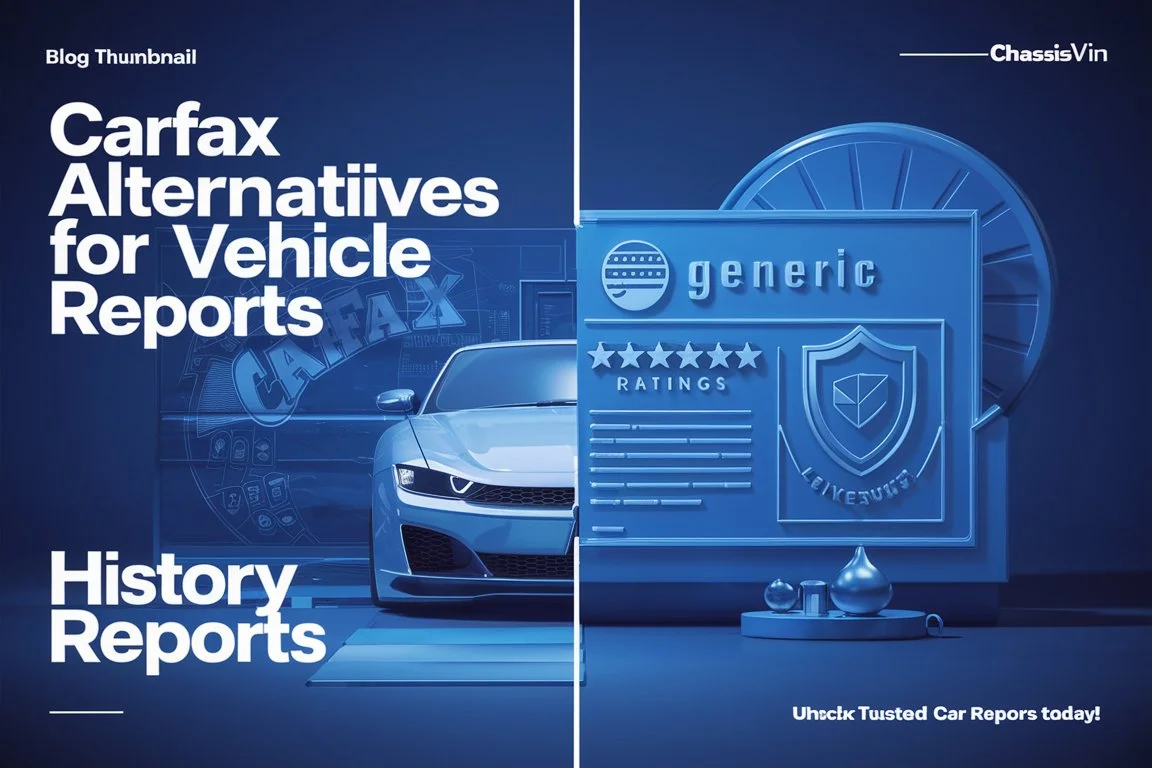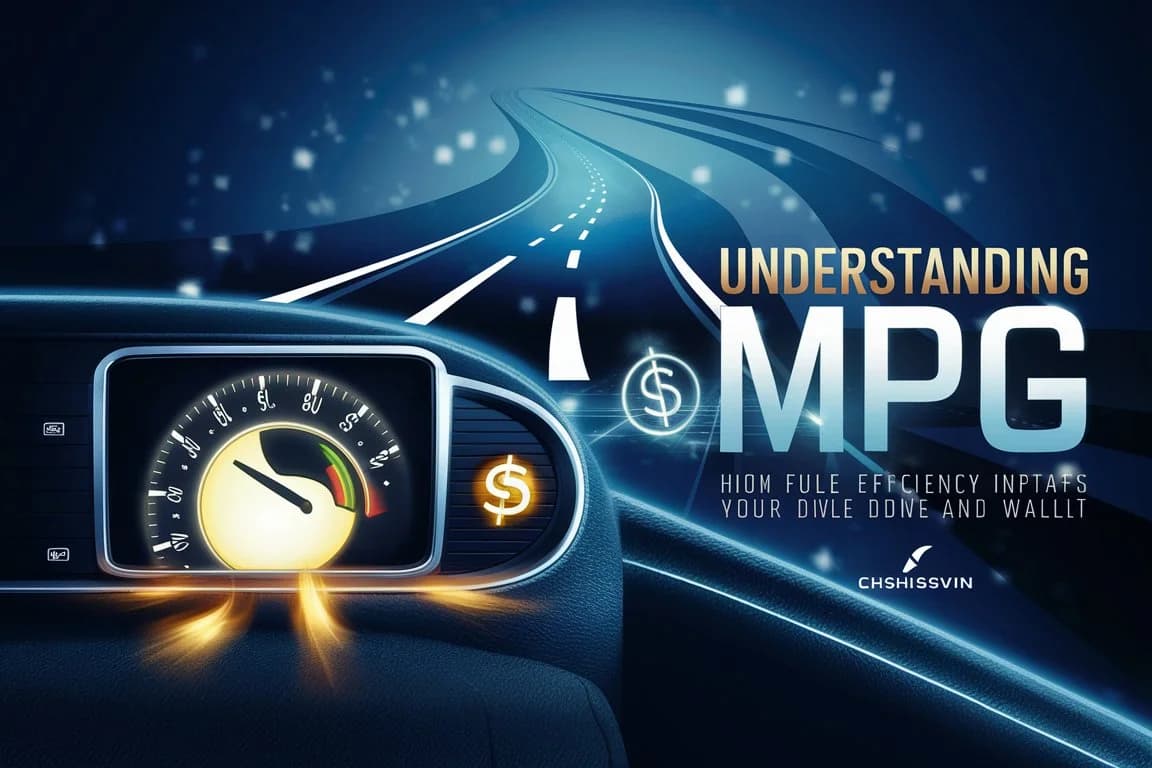What Is a Title Number for a Car?
Learn what a car title number is, where to find it, and why it's essential. This guide covers title replacement, DMV tips, and more.
What Is a Car Title Number? Where Can You Find It?
The car title number is a unique identifier assigned to your vehicle's title by the Department of Motor Vehicles (DMV) or an equivalent state agency. It serves as a record of ownership and is used to track the vehicle's legal and financial history. If you're asking, “What is a title number?”, think of it as the fingerprint for your car's ownership records.
Understanding where and how to locate this number can save you time and frustration when dealing with vehicle registration, insurance, or title replacement processes. Let’s dive into where you can find your car's title number and why it's so important.
Where Can You Find Your Car Title Number?
Locating your car title number can vary depending on the documentation you have on hand. Here are the common places where you can find it:
Certificate of Title
Your vehicle's title certificate is the most direct source of the title number. It is usually located near the top of the document, labeled as 'Title Number' or 'Document Number.' Keep this document in a safe place, as it’s critical for proving ownership or selling your car.
Vehicle Registration and Renewal Documents
If you don’t have the title certificate, check your vehicle registration or renewal documents. These often include the title number, particularly in states where title and registration systems are closely linked.
Your Local DMV
When in doubt, visit or contact your local DMV office. They can provide the title number after verifying your identity and ownership of the vehicle. Be prepared to present a valid ID and possibly proof of insurance.
Insurance Companies
Some insurance companies keep a record of your title number as part of their documentation. Reviewing your policy details or contacting your insurer might help you locate it.
What Is a Car Title Number?
A car title number is not just a random sequence of digits. It represents a crucial part of your vehicle’s identity. In most cases, it is tied to the vehicle's VIN (Vehicle Identification Number), making it easier to trace ownership, liens, or any legal claims. Without this number, processing transactions like selling your car or securing a title replacement becomes challenging.
For example, if someone asks, 'What is the title number of a car?', it's important to understand its purpose. It confirms ownership and simplifies tasks like transferring the title during a sale.
How Do I Find My Car Title Number?
If you're struggling to locate your car title number, start with the documents mentioned earlier. Ensure all information matches, especially when dealing with the DMV or other institutions, to avoid discrepancies.
Dealing with a Stolen Car Title
A stolen car title can be a significant problem. If you suspect your title has been stolen, act quickly:
- File a police report to document the theft and protect yourself legally.
- Contact your local DMV to notify them of the situation.
- Apply for a duplicate title to ensure you maintain ownership rights.
Handling a Lost Car Title
Losing your car title can feel overwhelming, but the process for obtaining a replacement is straightforward. Here’s what you’ll need:
- A completed application for a duplicate title (available from your DMV).
- A valid form of identification, such as a driver’s license.
- Any applicable fees, which vary by state.
Once your application is approved, the DMV will issue a new title, complete with a unique title number.
Preparing for Title Replacement
Whether your title is lost, stolen, or damaged, preparing for a replacement ensures a smoother process:
- Gather all required documents, including proof of insurance and vehicle registration.
- Double-check that your VIN and personal information match the DMV records.
- Consider expediting the process if you need the title urgently. Many states offer express services for an additional fee.
Having this information ready can save time and reduce stress.
Conclusion
Understanding ‘what is a car title number’ and its significance can make vehicle-related tasks much simpler. From locating it on your documents to handling lost or stolen titles, being informed is your best tool. For additional resources or to look up your car’s details, visit services like VIN Decoders or Build Sheets by VIN. These tools can help verify information and provide peace of mind.
Why Is a Car Title Number Important?
The car title number plays a critical role in various legal and administrative processes involving your vehicle. Here's why it’s important:
- Proof of Ownership: The title number confirms legal ownership of the car, which is essential for transactions like selling or gifting your vehicle.
- Preventing Fraud: The unique identifier helps prevent title fraud by ensuring a vehicle's history is accurately tracked.
- Liens and Loans: Financial institutions often use the title number to verify ownership before approving loans or liens.
- Facilitating Insurance Claims: Insurance companies may require the title number to process claims and validate vehicle details.
Understanding the importance of the title number can help you maintain accurate records and avoid complications in the future.
How Is a Car Title Number Different from a VIN?
While the car title number and Vehicle Identification Number (VIN) are closely related, they serve different purposes:
- Car Title Number: This is issued by the state and is specific to the car's title document. It may change if a new title is issued, such as during a transfer of ownership.
- VIN: The VIN is a 17-character code assigned to the vehicle by its manufacturer. It is permanent and uniquely identifies the vehicle, tracking its history from production to end-of-life.
In summary, the title number tracks the ownership and legal status of the vehicle, while the VIN provides a detailed history of the car itself.
Can a Car Title Number Change?
Yes, a car title number can change in certain circumstances. Here are some scenarios where this might happen:
- Title Replacement: If your title is lost, stolen, or damaged, the replacement document may be issued with a new title number.
- Ownership Transfer: When you sell or gift your car, the new owner will receive a title with a different title number.
- State Relocation: Moving to a new state may require you to re-title your vehicle, resulting in a new title number specific to that state.
It's important to keep track of your most recent title number to avoid confusion or issues with legal and financial transactions.
Common Issues with Car Title Numbers
Car title numbers are crucial, but they can sometimes lead to challenges. Here are some common issues and how to resolve them:
- Title Number Errors: Mistakes on the title document can delay transactions. Always double-check the information and request corrections from your DMV.
- Duplicate Titles: Having multiple titles for the same vehicle can cause confusion. Ensure any old or invalid titles are marked void or destroyed.
- Fraudulent Titles: Beware of title fraud, especially when buying used vehicles. Verify the title number with the DMV to ensure it matches the vehicle's history.
- Missing Title Numbers: If your documents are missing the title number, contact your DMV for assistance in retrieving it.
Addressing these issues promptly can save time and prevent legal complications.
How to Verify a Car Title Number
Verifying a car title number is an essential step when purchasing a used vehicle or resolving title disputes. Here’s how you can do it:
- Use Online Title Lookup Tools: Services like VIN Decoders or title lookup tools allow you to check title information quickly.
- Contact the DMV: Visit or call your local DMV office to verify the title number against their records.
- Request a Vehicle History Report: Services like Carfax provide detailed reports that include title status, liens, and previous ownership.
Verification helps ensure the vehicle you’re dealing with has a clean title and no hidden issues.
Tips for Keeping Your Title Number Safe
Protecting your car title number is crucial to avoid fraud or misplacement. Here are some tips to keep it safe:
- Store the Title Securely: Keep your title in a safe location, such as a locked file cabinet or a safety deposit box.
- Avoid Carrying It in Your Car: Never leave the title in your vehicle to reduce the risk of theft.
- Use Digital Copies: If your state allows, maintain a digital copy of your title for reference, but never share sensitive information without verifying the recipient.
- Monitor Vehicle Records: Regularly check your vehicle's title status through the DMV or third-party services to ensure no unauthorized changes have occurred.
These practices can help you avoid complications and ensure the security of your vehicle documentation.
Can You Transfer a Car Without a Title Number?
Transferring a car without a title number can be challenging but not impossible in some cases. Here's what you need to know:
- Lost Titles: If the title is lost, you’ll need to apply for a duplicate title before transferring ownership.
- Bill of Sale: In some states, a signed bill of sale can temporarily substitute for a title during a private sale.
- State Regulations: Rules vary by state, so check with your local DMV to understand the requirements.
- Proof of Ownership: Additional documentation, like old registration papers or loan payoff letters, may be required to prove ownership.
While transferring without a title number is complex, following the right procedures can help you complete the transaction legally.
Our Services
Window Sticker
Print window sticker for your vehicle
VIN Decoder
Decode any vehicle manufacturer
Classic VIN Lookup
Decode VINs for classic and vintage vehicles
License Plate Lookup
Search license plate information
VIN Check
Decode any vehicle in US states
Build Sheet by VIN
Get detailed build sheet for your vehicle
Dealers
Unlimited vehicle history reports
Paint Code by VIN
Find your vehicle's exact paint color code
VIN Explorer
Explore detailed vehicle information by VIN
Warranty Check
Check warranty information by VIN
Vehicle Recalls
Understanding Vehicle Recalls: A Complete Guide

Ethan J. Caldwell
Ethan James Caldwell is a graduate of George Washington University (GW). Born and raised in Washington, Ethan has had a lifelong passion for cars, motorcycles, and all things automotive. From a young age, he was captivated by the mechanics, design, and culture surrounding vehicles, which eventually inspired his career. Ethan currently drives a silver 2005 Honda Accord, a testament to his appreciation for reliable and timeless vehicles.
Frequently Asked Questions
A car title number is a unique identifier assigned to a vehicle's title, representing ownership and enabling easy tracking of the vehicle's legal and financial history.
Your car title number is typically located on the vehicle's title certificate, registration documents, or available through your local DMV.
If you lose your car title, you should contact your local DMV to apply for a duplicate title. Be prepared to provide identification, proof of ownership, and pay any applicable fees.
Yes, some insurance companies record the title number as part of their documentation. Check your policy details or contact your insurer for assistance.
The time frame for receiving a replacement title varies by state but typically ranges from a few days to several weeks. Expedited services may be available for faster processing.
Our Blog Articles
Discover insights about vehicle history, maintenance, and buying guides

Carfax Alternatives for Vehicle History Reports: Your Best Options
Explore the best Carfax alternatives for vehicle history reports. Get detailed reports on accidents, ownership, and more. Find the right choice for you.

Understanding MPG (Miles Per Gallon) in Cars: A Complete Guide
Learn what MPG means, how it's calculated, and how to improve your car's fuel efficiency. Get the most out of your vehicle's MPG with ChassisVIN.

Explanation of Black Book Car Value: Your Guide to Vehicle Valuation
Understand Black Book car values. Learn how they work, who uses them, and how they compare to other resources. Get the info you need for informed decisions.
